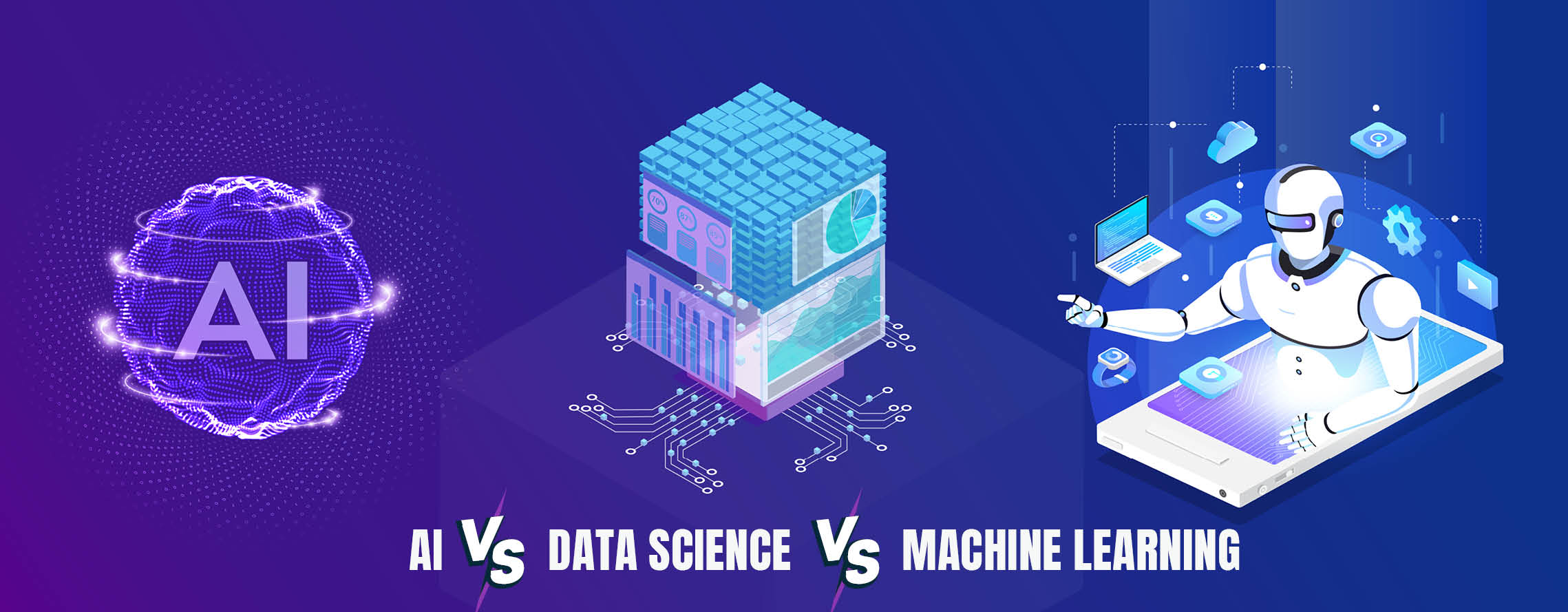
Over the past few years, the popularity of Artificial Intelligence (AI), Machine Learning, and Data Science has risen to such an extent that most companies have now engaged in their digital transformation journey toward a fully connected factory or Industry 4.0.
Simply put, Data science, machine learning, and artificial intelligence (AI) are interconnected fields that combine to extract insights from data, make predictions, and automate decision-making processes.
What is Data Science?
When you shop online, have you noticed how the platform suggests products similar to the ones you've viewed or purchased before? This is made possible through data science. Algorithms analyse your past purchases, browsing history, and even demographic information to predict what products you might be interested in, thus enhancing your shopping experience.
Data science involves extracting insights and knowledge. It combines elements of mathematics, statistics, computer science, and domain knowledge to analyse large volumes of data and extract meaningful patterns, trends, and insights. Data science encompasses various techniques, including statistical analysis, machine learning, data mining, and visualisation.
How is the Data Science Foundation for AI?
Data science plays a crucial role in AI by providing the necessary tools and techniques to analyse and derive insights from data. AI systems often rely on large volumes of data to learn and improve their performance, and data science helps in preprocessing, cleaning, analysing, and interpreting this data to extract meaningful patterns and insights.
Imagine you work for a retail company that wants to improve its sales strategy using artificial intelligence (AI). The company collects vast amounts of data, including sales transactions, customer demographics, website interactions, and social media mentions. Through data analysis, the retail company might discover that customers who purchase certain types of clothing are more likely to buy accessories if they receive personalised recommendations based on their previous purchases. With this insight, the company can develop AI-powered recommendation systems to suggest relevant products to customers, ultimately boosting sales.
Role of Machine Learning in AI?
Machine learning is a subset of AI that focuses on developing algorithms and models that enable computers to learn from data and improve their performance without being explicitly programmed. Many AI systems employ machine learning techniques to analyse data, make predictions, and adapt to new information, making it a fundamental component of AI.
For the same retail company, once they receive the data, data scientists use various analytical techniques to extract valuable insights. They may employ machine learning algorithms to identify patterns in customer behaviour, such as which products are frequently purchased together or which marketing campaigns are most effective for different demographic groups.
Understanding Through a Case Study
There is an online retail company specialising in fashion apparel. They want to enhance customer engagement on their website and increase sales by providing personalised recommendations to their customers. Now let’s see how Data Science, AI and Machine Learning can help them.
Data Science - The data science team starts by collecting and analysing vast customer data, including browsing history, purchase history, demographics, and social media interactions. They use statistical analysis and data visualisation techniques to identify patterns and trends in customer behaviour.
Machine Learning - With the insights gained from data analysis, the machine learning team develops algorithms to predict customer preferences and recommend products tailored to individual interests. They train these algorithms using supervised learning techniques, continually refining them based on real-time feedback and customer interactions.
Artificial Intelligence (AI) - The company integrates AI-powered chatbots into its website. These chatbots use natural language processing algorithms to interact with customers in real time, providing personalised recommendations, answering questions, and addressing concerns. The chatbots learn from each interaction, becoming more efficient and accurate over time.
Results - The company successfully improves customer engagement and boosts sales by using data science, machine learning, and AI. Customers receive personalised recommendations that align with their preferences, leading to increased satisfaction and loyalty. The AI-powered chatbots enhance the shopping experience by providing instant assistance, ultimately driving higher conversion rates and revenue for the company.
Difference between AI, Data Science and Machine Learning
Study CSE - Artificial Intelligence & Machine Learning from VIT Pune
Studying B.Tech in Computer Science and Engineering with a specialisation in Artificial Intelligence & Machine Learning at VIT Pune offers a comprehensive and cutting-edge educational experience. Through theoretical knowledge and hands-on practical learning, students delve deep into AI and ML, exploring algorithms, data structures, neural networks, and more. The program at VIT Pune is designed to equip students with the skills and expertise needed to tackle real-world challenges in AI and ML, preparing them for careers in diverse industries such as technology, finance, healthcare, and beyond. With world-class faculty, state-of-the-art infrastructure, and industry collaborations, VIT Pune provides a dynamic learning environment where students can thrive and innovate in the exciting field of artificial intelligence and machine learning.
Frequently Asked Questions (FAQ’s)
What are the critical applications of AI, Data Science, and Machine Learning?
AI can be applied in various domains, such as chatbots, voice assistance, and robotics. Data Science solves business problems, spot trends, and predicts market conditions. Machine Learning builds systems that learn from data and improve tasks over time.
What skills are required for a Data Science, AI, and Machine Learning career?
Proficiency in mathematics, statistics, and programming languages (such as Python or R) and an understanding of algorithms and data structures are essential for careers in these fields.
Ethical considerations include data bias, privacy concerns, the transparency and accountability of AI systems, and the potential impact on employment and societal norms.
Examples include virtual assistants like Siri and Alexa, recommendation systems on platforms like Amazon and Netflix, and autonomous vehicles.
Data Science encompasses various techniques, including statistical analysis, machine learning, data mining, and visualisation.
666, Upper Indiranagar, Bibwewadi,
Pune, Maharashtra, INDIA - 411 037.
For Admission :- 91 - 7058432258 / 8793428634
For Admission :- Office Timing :-
Monday to Friday - 10am to 5 pm